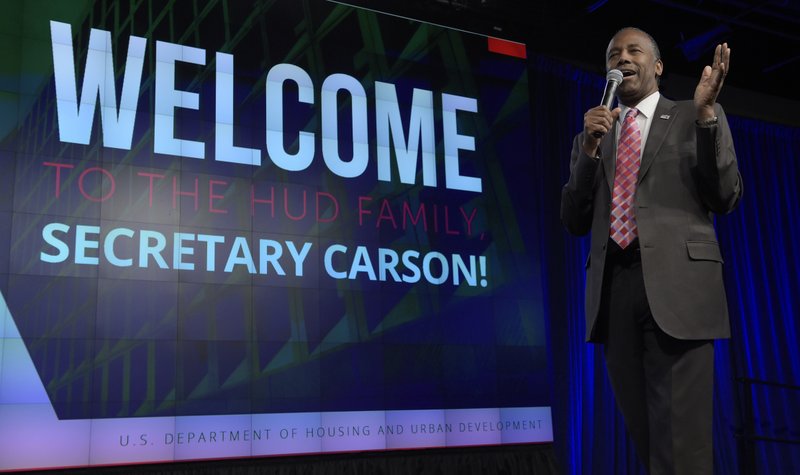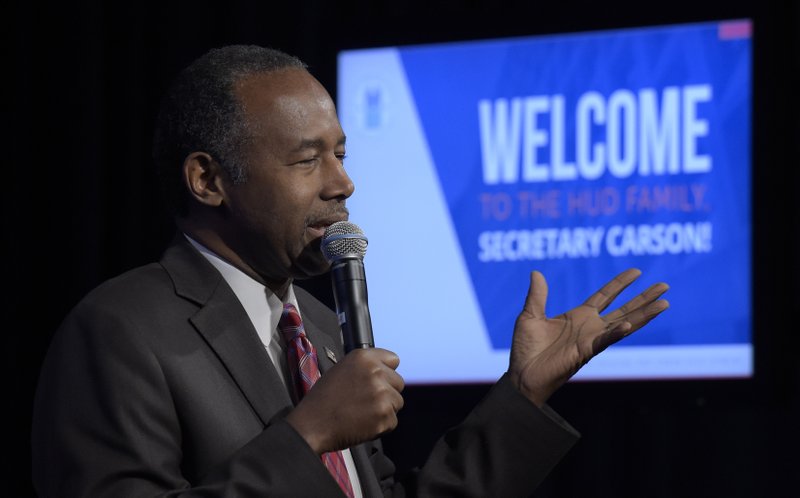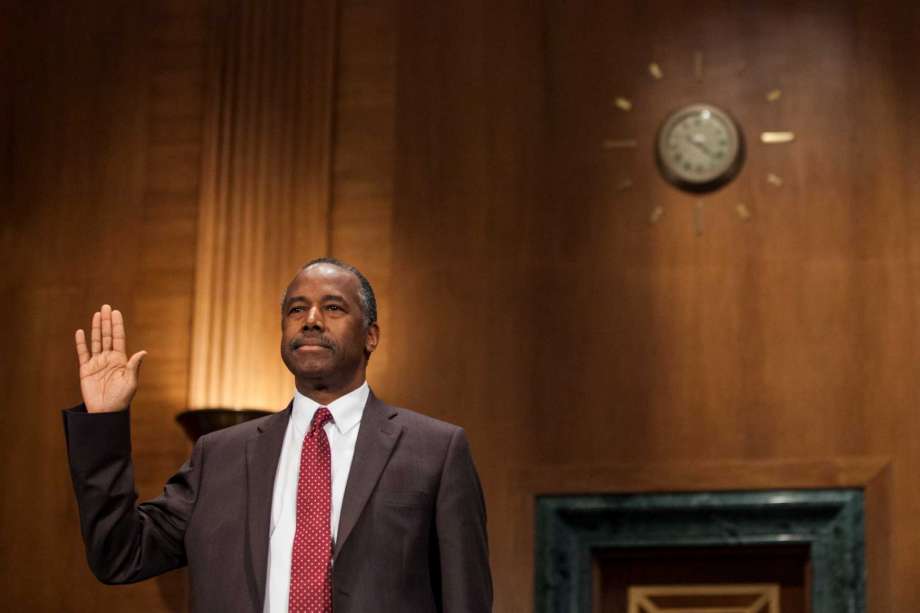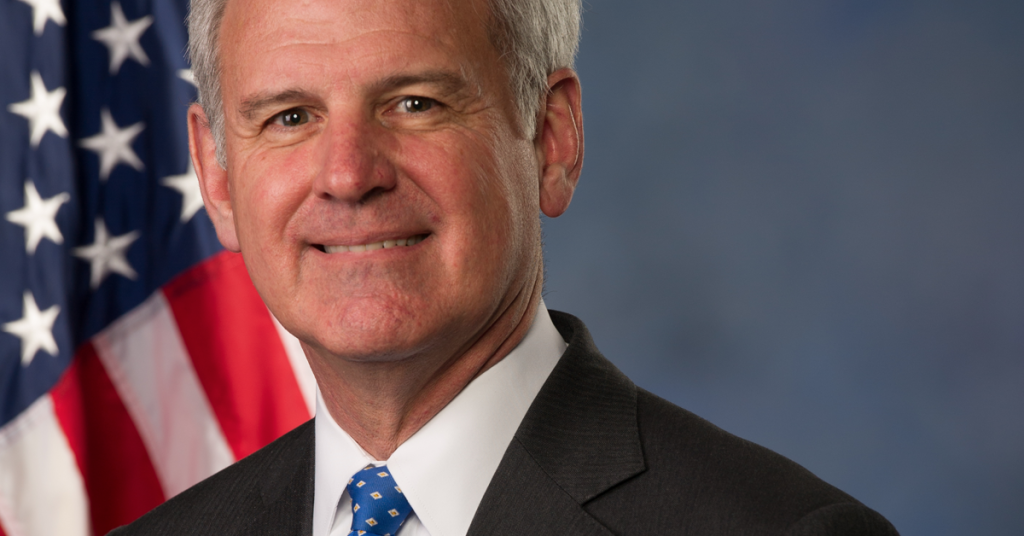HUD Secretary Marcia Fudge to visit Birmingham today

U.S. Department of Housing and Urban Development (HUD) Secretary Marcia Fudge will visit Birmingham today to make a major announcement. She will be joined by Congresswoman Terri Sewell and Birmingham Mayor Randall Woodfin. Sec. Fudge is expected to announce a major federal investment in affordable housing and community development. “I look forward to welcoming Housing and Urban Development Secretary Marcia Fudge to the City of Birmingham this Wednesday and to participate in the major announcement and tour,” said Rep. Sewell. “I have been working with the City of Birmingham to address the housing needs in the Smithfield, College Hills, and Graymont neighborhoods. If awarded, this funding would be the catalyst for transformational change in the City of Birmingham.” Secretary Fudge is the 18th Secretary of the U.S. Department of Housing and Urban Development. Secretary Fudge served as U.S. Representative for the 11th Congressional District of Ohio from 2008 to March 9, 2021. She was a member of several Congressional Caucuses and past Chair of the Congressional Black Caucus. In 1999, Secretary Fudge was elected the first female and first African American mayor of Warrensville Heights, Ohio, a position she held for two terms. As a former mayor, Secretary Fudge has seen firsthand the need for economic development and affordable housing. She prioritized improving the City’s tax base and expanded opportunities for affordable housing. Secretary Fudge’s career in public service began in the Cuyahoga County Prosecutor’s Office, rising to the rank of Director of Budget and Finance. While the Birmingham-Hoover metropolitan area remains the largest metro area in the state, Birmingham itself has been in a long slow decline since its zenith at over 340,900 people in 1960. Today Birmingham has a population of just over 192,557. Fast-growing Huntsville is now the largest city in Alabama. Montgomery, though also in decline, has a slightly larger population than Birmingham. Recent annexation elections in Mobile mean that that city has vaulted into second place ahead of both Birmingham and Montgomery. Birmingham officials are eager to address the decaying housing problem as well as crime in order to stem the tide of migration out of the city limits. Fudge will join Woodfin, Sewell, and community leaders at a press conference to announce the expected federal investment in affordable housing for the city. They will also be joined by Dontrelle Young-Foster, President, and CEO of the Housing Authority of the Birmingham District (HABD), and Karen Lawrence, Smithfield Court Resident. The announcement is scheduled for 10:20 a.m. CT in the Smithfield Court Community. To connect with the author of this story or to comment, email brandonmreporter@gmail.com.
Senate confirms Alabama-native Paul Compton as HUD’s General Counsel

Monday night, by a vote of 62 to 34, the U.S. Senate confirmed Alabama-native Paul Compton, Jr. to be the next General Counsel of the Department of Housing and Urban Development (HUD). HUD Secretary Ben Carson welcomed the Senate’s action and said it comes at a critical time as the Department prepares to support the long-term recovery efforts following Hurricanes Harvey, Irma and Maria and other natural disasters that have affected the country. “Paul’s extensive background in real estate and housing finance will be a tremendous asset to this Department as we continue to support our nation’s housing markets and our state and local partners recovering from recent disasters,” said Carson. “I look forward to adding Paul’s expertise to our highly experienced senior team.” A former partner of the Birmingham-based law firm of Bradley Arant Boult Cummings, LLP, Compton is listed by Chambers USA as one of America’s leading business lawyers on issues related to banking, finance and regulatory matters. He has vast legal expertise in the areas of multifamily affordable housing finance, tax credit transactions and residential mortgage securitization and has also served as a legal advisor to the Alabama Affordable Housing Association (AAHA), a trade organization for developers, property managers, lenders, investors and service providers for affordable housing.
Housing chief Ben Carson steps up public profile in coming weeks

President Donald Trump‘s point man on housing, Ben Carson, takes on a higher profile this month in Washington – an opportunity to spell out his vision on federal housing policy, and to try to avoid some of the verbal gaffes that have stirred criticism in his first months on the job. On Thursday, Carson will headline a homeownership conference at his agency, the Department of Housing and Urban Development. Next week, he heads to Capitol Hill to testify before House and Senate panels about deep cuts planned for HUD in Trump’s proposed budget. It’s a shift in visibility for the renowned neurosurgeon and former Republican presidential candidate as he nears 100 days in Trump’s Cabinet. Since taking the helm of HUD in March, Carson, 65, has visited a handful of cities as part of a national “listening tour” to talk to HUD employees, housing officials and public housing residents. He’s also had appearances at some housing conferences – most of it with little or no advance notice to the media. So far, he has not shared publicly his policy agenda for the department. HUD spokesman Raffi Williams says Carson is no longer a candidate running for political office and has been busy leading a $40 billion federal agency that has more than 8,000 employees. “He’s focused on governing and crafting policies that advance HUD’s mission of creating strong, sustainable, inclusive communities and quality affordable homes for all Americans,” said Williams. When Carson has discussed his views on government and housing policy, he’s sparked some criticism. In his first full week on the job, Carson seemed to describe slaves as immigrants, saying – “there were other immigrants who came here on the bottom of slave ships, worked even longer, even harder for less.” Last week, on the radio show of close friend and conservative commentator Armstrong Williams, Carson said poverty is largely a “state of mind.” “You take somebody who has the right mindset, you can take everything from them and put them on the street and I guarantee you, in a little while, they’ll be right back up there,” Carson told Armstrong on his SiriusXM show. “And you take somebody with the wrong mindset, you can give them everything in the world and they’ll work their way back down to the bottom.” The comments from Carson, who grew up poor in inner-city Detroit, stoked outrage on social media – coming from the head of an agency that provides millions of lower-income people with rental subsidies and other housing assistance. But Rolf Pendall, co-director of a housing program at the Urban Institute think tank, isn’t worried that Carson has “been given the mission of destroying the agency.” While not defending Carson’s comments, Pendall said the housing chief’s testimony during his January confirmation hearing shows “he clearly does think that HUD is part of the solution to urban problems, to rural problems, to housing problems in the United States, and that many of its programs have been effective in the past.” Carson’s vision could become clearer when he testifies about the administration’s proposed $6 billion cut in the agency’s $47 billion budget. Slated for elimination in the Trump budget are several housing support and community development programs, such as the $3 billion Community Development Block Grant program. The plan also would cut about $2 billion from the department’s rental assistance programs, to $35.2 billion. Rental assistance programs comprise about 80 percent of the agency’s total funding. New requirements to encourage work and self-sufficiency are part of the plan. One proposal would increase the tenant contribution toward rent from 30 percent of adjusted income to up to 35 percent of gross income. The cuts would be devastating, Pendall said: “People will lose housing vouchers. They will become homeless, and some of them will die.” Diane Yentel, president and CEO of the National Low Income Housing Coalition, says she wants to see Carson focus on programs with proven results – such as the Housing Trust Fund, which the Trump budget would eliminate, or Section 8 housing vouchers. “Each of these programs not only end homelessness and housing insecurity, but they are proven to increase the educational attainment of the kids living in those affordable homes and to increase the lifetime earnings of the kids living in those homes,” Yentel said. Yentel called Trump’s budget proposal “extreme overreach” and said she worries it moves the goal posts so far that “it creates an environment where cuts only half as deep seem like a reasonable compromise.” Republished with permission of The Associated Press.
HUD could face steep cuts, but Ben Carson says numbers early

Housing Secretary Ben Carson sought Thursday to reassure his agency that budget cuts may not be as steep as some fear, even as housing advocates and others brace for deep reductions to public housing and anti-poverty programs. The cuts said to be under consideration, more than $6 billion, would target community development block grants and some public housing money. The idea would be to help offset some of the $54 billion increase in defense spending that President Donald Trump is seeking. In an email Thursday to Department of Housing and Urban Development employees, the newly confirmed Carson cautioned that the budget numbers were preliminary and that “starting numbers are rarely final numbers.” “Rest assured, we are working hard to support those programs that help so many Americans, focus on our core mission, and ensure that every tax dollar is spent wisely and effectively,” wrote Carson, who was confirmed as HUD secretary late last week. The Washington Post reported late Wednesday that early numbers for fiscal year 2018 showed HUD’s overall budget being slashed about 14 percent, to $40.5 billion — including cuts of about $2 billion from public housing funds and the elimination of the Community Development Block Grant Program, which funds local improvement efforts and other programs. At his confirmation hearing in January, Carson took a softer approach toward the role of the federal government than he sometimes did on the presidential campaign trail, where he challenged Trump for the GOP nomination. When reminded that he had called for across-the-board agency spending cuts of 10 percent during the campaign, Carson told the Senate banking committee that he later modified that amount to 1 percent. He also said HUD’s rental assistance programs are “essential” to millions of Americans and said the agency had many good programs. He added, though: “We don’t want it to be way of life. … We want it to be a Band-Aid and a springboard to move forward.” New York City Council Member Ritchie Torres said public housing in his city is so financially and physically fragile that it cannot safely absorb the shock of a 14 percent reduction in HUD’s budget. “The budget cuts will lead to more public health hazards in public housing,” Torres, chair of the council’s committee on public housing, said in an interview Thursday. “It will lead to more leaking and molded conditions in public housing. It will lead to more neglect of the physical infrastructure.” In Newton, Massachusetts, Mayor Setti Warren said killing the community development block grants would be devastating to his community. “This critical program provides people with higher paying jobs, affordable housing and opportunities for children to reach their full potential,” said Warren. The block grant money has been used in Newton for infrastructure improvements to housing for seniors, open space projects in poorer neighborhoods and money for social service programs for children such as Boys & Girls Clubs. National Urban League President Marc Morial said cuts like those that are being discussed would undercut the agency’s mission. “It’s a cruel and unusual hit to say that we’re going to cut the most vulnerable citizens in America and we’re going to go spend the money on the implements of war,” Morial said. Republished with permission of The Associated Press.
Retired neurosurgeon Ben Carson gets hearing for HUD chief

Former Republican presidential candidate Ben Carson defended his experience and credentials Thursday to serve as the nation’s new housing secretary, turning to his life story to show that he understands the needs of the country’s most vulnerable. President-elect Donald Trump wants Carson, a former White House rival, to lead the Department of Housing and Urban Development, a sprawling agency with 8,300 employees and a budget of about $48 billion. At his confirmation hearing before the Senate Banking, House and Urban Affairs Committee, the famed neurosurgeon talked about growing up in inner-city Detroit with a single mother who had a third-grade education and worked numerous jobs to keep a roof over their heads and food on the table. “I have actually in my life understood what housing insecurity was,” he told lawmakers. Democrats in the GOP-run Senate questioned his experience. Carson said one of the things he’s learned in private life as part of various boards is how to find a good CEO. He said a good CEO doesn’t necessarily know everything about running a particular business, but he knows how to select people and use their talents. Carson said HUD’s rental assistance programs are “essential” to millions of Americans. The department, he said, has a lot of good programs, but “the progress perhaps has not been as great as one would like to see.” He added: “We don’t want it to be way of life. … We want it to be a Band-Aid and a springboard to move forward.” Ranking Committee Democrat Sen. Sherrod Brown of Ohio and Sen. Elizabeth Warren, D-Mass., pressed Carson about whether he could guarantee that no HUD money would benefit Trump or his family, which has made its fortune in real estate. “I will not play favorites for anyone. … I will manage things in a way that benefits the American people,” Carson said. Carson displayed a softer approach toward the role of the federal government than he sometimes did on the presidential campaign trail. When reminded that he had called for across-the-board agency spending cuts of 10 percent during the campaign, Carson noted that he later modified that amount to 1 percent. Carson talked about a more “holistic approach” to helping people and developing “the whole person.” For example, he said, HUD could work with other agencies such as the Education and Labor Departments on better access to a quality education and apprenticeship programs to train workers. Several former HUD secretaries, Democrats and Republicans, wrote the committee in support of Carson. The letter was signed by Henry Cisneros, secretary under President Bill Clinton, and Mel Martinez, Alphonso Jackson and Steven Preston, who worked for President George W. Bush. The soft-spoken Carson, the only black major-party candidate in the 2016 presidential race, grew up poor. He attended Yale University and the University of Michigan Medical School, and was the first African-American named as head of pediatric neurosurgery at Johns Hopkins Children’s Center in Baltimore. In 1987, Carson pioneered surgery to separate twins joined at the back of the head. In 2013, he entered the national political spotlight when, during the National Prayer Breakfast, he railed against the modern welfare state. President Barack Obama was sitting just feet away. Before Thursday’s hearing, Carson had said little publicly about federal housing issues. In a 2015 opinion piece, he criticized an Obama administration fair housing rule as government overreach. At his hearing Thursday, he told lawmakers he would work with local HUD officials to “make sure that fairness is carried out.” Republish with permission of The Associated Press.
Donald Trump nominates Ben Carson as Housing and Urban Development secretary

Palm Beach neurosurgeon and former Republican presidential candidate Ben Carson is Donald Trump‘s pick to be secretary of Housing and Urban Development. Trump’s transition office announced the nomination Monday, bringing his once rival but early supporter into the cabinet discussion for his administration. “I am thrilled to nominate Dr. Ben Carson as our next Secretary of the U.S. Department of Housing and Urban Development. Ben Carson has a brilliant mind and is passionate about strengthening communities and families within those communities,” Trump stated in a news release. “We have talked at length about my urban renewal agenda and our message of economic revival, very much including our inner cities. Ben shares my optimism about the future of our country and is part of ensuring that this is a presidency representing all Americans. He is a tough competitor and never gives up.” “He is a tough competitor and never gives up.” Carson ran a up-by-your-bootstraps campaign that placed him briefly among the top challengers to Trump’s steamroll primary bid last winter. Frequently, Carson spoke of finding ways to get people, particularly African-Americans such as himself, out of government-supported lives. His conservative views also extended to science, as he has questioned tenants of science ranging from evolution to the Big Bang Theory, leading Democrats to ridicule him widely. A Detroit native, Carson, 65, is a retired neurosurgeon, educated at Yale University and trained as a doctor the University of Michigan. He served as director of pediatric neurosurgery at Johns Hopkins Hospital in Maryland and retired in Florida. After dropping out of the presidential race in March, he quickly endorsed Trump in a news conference, declaring they had buried their hatchets. That news conference sparked immediate talk of the prospect Carson might serve in a Trump administration. Carson said both he and Trump committed to working together if Trump won. “I am honored to accept the opportunity to serve our country in the Trump administration,” Carson said. “I feel that I can make a significant contribution particularly by strengthening communities that are most in need. We have much work to do in enhancing every aspect of our nation and ensuring that our nation’s housing needs are met.”
Bradley Byrne: Fighting fraud, abuse

The federal government is huge. In fact, there are over 275 executive agencies, departments, and boards that employ over two million people. With a bureaucracy this size, it should come as no surprise that fraud and abuse is far too common. Since coming to Washington, one of my top priorities has been to reduce the overall size of the federal government and to cut waste and abuse. I took a step in the right direction earlier this year when I introduced the Sunset Act. My bill, known as the Sunset Inefficient and Unaccountable Government Act, would require all federal agencies to be reviewed and renewed by Congress once every ten years. If an agency failed to be renewed, it would go out of existence. Many in Washington were outraged by my idea because it challenged the status quo. Trust me, there is a lot of resistance when you try to push back against the Washington machine, but I have also heard a lot of positive support for my bill from conservative colleagues and those who support a smaller, more efficient federal government. In addition to pushing for large-scale reforms to the way the federal government operates, I am also committed to looking for targeted changes that will help cut down on abuse and waste. Recently, I saw a local news report on Local 15 News in Mobile about over-income families living in taxpayer funded public housing. After looking into the story, it turns out that 25,226 over-income families nationwide live in public housing. Right here in Alabama, there are 812 cases of over-income residents living in public housing, which ranks fourth highest in the United States. In fact, there is an individual living in public housing in Mobile who makes over $100,000 a year. That is astonishing. So I set out to learn more about how our public housing programs work. It turns out that families living in public housing are already required to go through yearly income verification checks, but those who are found to be over-income are not required to move out of their taxpayer funded homes or apartments. This is unacceptable and a waste of taxpayer money, so I went to work on legislation that would help make this right. A few weeks ago, I introduced H.R. 4133, the Public Housing Accountability Act. My bill would establish that any family found to be over-income must vacate public housing within 30 days. I want to make it clear that I understand the important role public housing plays for many of our nation’s poorest families, but allowing this kind of blatant fraud and abuse is a disservice to those who need truly need public housing. In fact, the Department of Housing and Urban Development Inspector General found that there are thousands of families across the United States on a wait list for public housing while these individuals take up space. For example, in the New York City Housing Authority, there are at least 10,000 over-income families living in public housing while over 300,000 families are on a waiting list. Tackling abuse in public housing is just a starting point. From food stamps to Medicaid, fraud is far too common in our nation’s welfare programs. I believe we need to entirely rethink the way our welfare programs work to ensure we are actually helping people get out of poverty instead of incentivizing them to stay there. At the end of the day, there is far too much fraud and abuse within the federal government. It is time Congress gets serious about reforming government to ensure it is both efficient and effective. Bradley Byrne is a member of the U.S. Congress representing Alabama’s 1st Congressional District.


